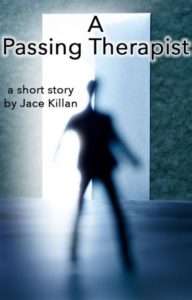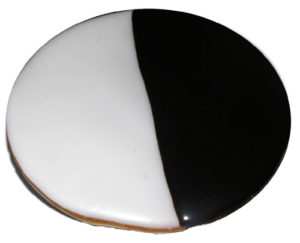Guest Post by Aubrie L. Nixon
The feeling the Iter gives me is unique. I have tried other drugs, of course, but the Iter is specific with its high. I see things that are unexplainable, things that any sane person would call disgusting. But since I am not sane, I continue to crave the dark and disturbing visions that the Iter gives me.
Some of us don’t survive the Iter. You die flying on a cloud of pure bliss as you fade into oblivion. Those of us who survive our first encounter are treated like kings and queens. We are rich beyond measure and could have anything we could dream of. Riches, cars, clothes, mansions, fame–anything we want, it is ours. It is the least they can offer us. But, after having the Iter, we want nothing but to feel the release and music it brings. We are the Iter’s muses, and we need it as much as it needs us. We are one.
I lie there with black leather pants and a dark lacy bra on. My hair is done in an elegant bun, and I have been painted with enough makeup that I might rival them for their beauty. I cannot feel anything from the neck down. All of the feeling in my body is gone. But for the time being, I can see things as they do. The world is brighter. The colors I can see are vast–more than any human brain can even begin to fathom. The first time I tried the Iter I wanted to cry at the beauty that surrounded me. But of course I couldn’t. I have no control of my body. I can do nothing but stare at the lovely room, and them.
The room is a garden in a large greenhouse near campus. The grassy ground is the most lovely shade of pure emerald green. I can see dew drops on the flower petals that surround me. I lie on a bed of fresh, blood-red roses on a table in the middle of the garden. The trees are of varying heights and colors. Pinks and reds, shades that I dream about when I am not here. The night sky is a dark purple, and the stars shine brighter than even the sun. Their beauty physically hurts.
The mirror on the ceiling shows me the scars on my pale skin. They are of varying colors and age. The ones that mark my stomach are many sizes for different organs. I watch as they place plates and trays around my body, filled with bloodied meats and liquids. I am the main event tonight, the center of everyone’s attention. Therefore, my table is the most exquisite. I watch as the masked ones bring in the guests. They are the Elite, the powerful ones. They have paid more money than I could ever accumulate in a lifetime to be here. They are here to see me, to be able to be next to me. It is the highest honor to be the main event.
The music starts as the Iter takes hold, and I become its puppet. I am surrounded by a dozen of them. They are dressed in finery and expensive jewels. They whisper excitedly as they take in the spread on of the table, and their eyes rake over me hungrily. The chef welcomes them and introduces me: Elana Arravey, 22, of Norse descent. Diet: Sparkling water, strawberries, pineapples, and low protein. The crowd applauds excitedly. The chef murmurs a few words in their language, and then she cuts into me. Blood trickles down my chest as she cuts open my skin. Servants catch my blood in champagne flutes, and pass it out to the ravenous crowd. I feel the chef’s hand inside of my chest, as she reaches inside me, through my sternum, and grabs my heart. I watch as she pulls it from my chest. It pulses with life, blood squirting from the valves, painting the chef’s pale, white hand like fondue. It’s beautiful. She places my heart in a bowl.
The bidding starts at 1 million. I watch in the mirror as the heart is bid on by the room. The pulsing never stops, filling the bowl with my blood. The crowd grows frenzied as the bidding war continues. 2 million, 3, 4, 5 million. We are down to three guests left bidding. 6, 7, 8 million. Two guests. 9, 9.5, 10 million. Going once, twice, three times, sold!
My heart, sold for 10 million dollars. A hush goes over the room. It is rare that a heart goes for 10 million dollars, but it is the first time this organ has been touched. It is a trophy to take someone’s heart for the first time. The one that gets to taste my heart comes to claim his prize. I wish I could see him. I hear the crowd murmur their excitement as the chef takes the bowl from the servers and places my heart on a silver platter. I can hear him lick his lips as he reaches for my heart. I smile as he licks it, the blood dripping from his mouth. Just a taste.
I awake in my bedroom, the alarm blaring like a foghorn. I open my eyes, everything around me blurry from the sleep in my eyes. I sigh as I sit up slowly and place my feet on the cold floor. My body is numb except for the dull ache my chest. I smile at the pain, and start the shower.
 Aubrie is 24 years young. She plays mom to a cutest demon topside, and is married to the hottest man in the Air Force. When she isn’t writing she is daydreaming about hot brooding anti-heroes and sassy heroines. She loves Dragon Age, rewatching Game of Thrones and reading all things fantasy. She runs a local YA/NA bookclub with 3 chapters, and over 200 members. Her favorite thing to do is eat, and her thighs thank her graciously for it. If she could have dinner with anyone living or dead it would be Alan Rickman because his voice is the sexiest sound on earth. He could read the dictionary and she would be enthralled. Her current mission in life is to collect creepy taxidermy animals because she finds them cute and hilarious. She resides just outside of Washington DC.
Aubrie is 24 years young. She plays mom to a cutest demon topside, and is married to the hottest man in the Air Force. When she isn’t writing she is daydreaming about hot brooding anti-heroes and sassy heroines. She loves Dragon Age, rewatching Game of Thrones and reading all things fantasy. She runs a local YA/NA bookclub with 3 chapters, and over 200 members. Her favorite thing to do is eat, and her thighs thank her graciously for it. If she could have dinner with anyone living or dead it would be Alan Rickman because his voice is the sexiest sound on earth. He could read the dictionary and she would be enthralled. Her current mission in life is to collect creepy taxidermy animals because she finds them cute and hilarious. She resides just outside of Washington DC.
Preorder Aubrie’s debut novel DARKNESS WHISPERS, here.





